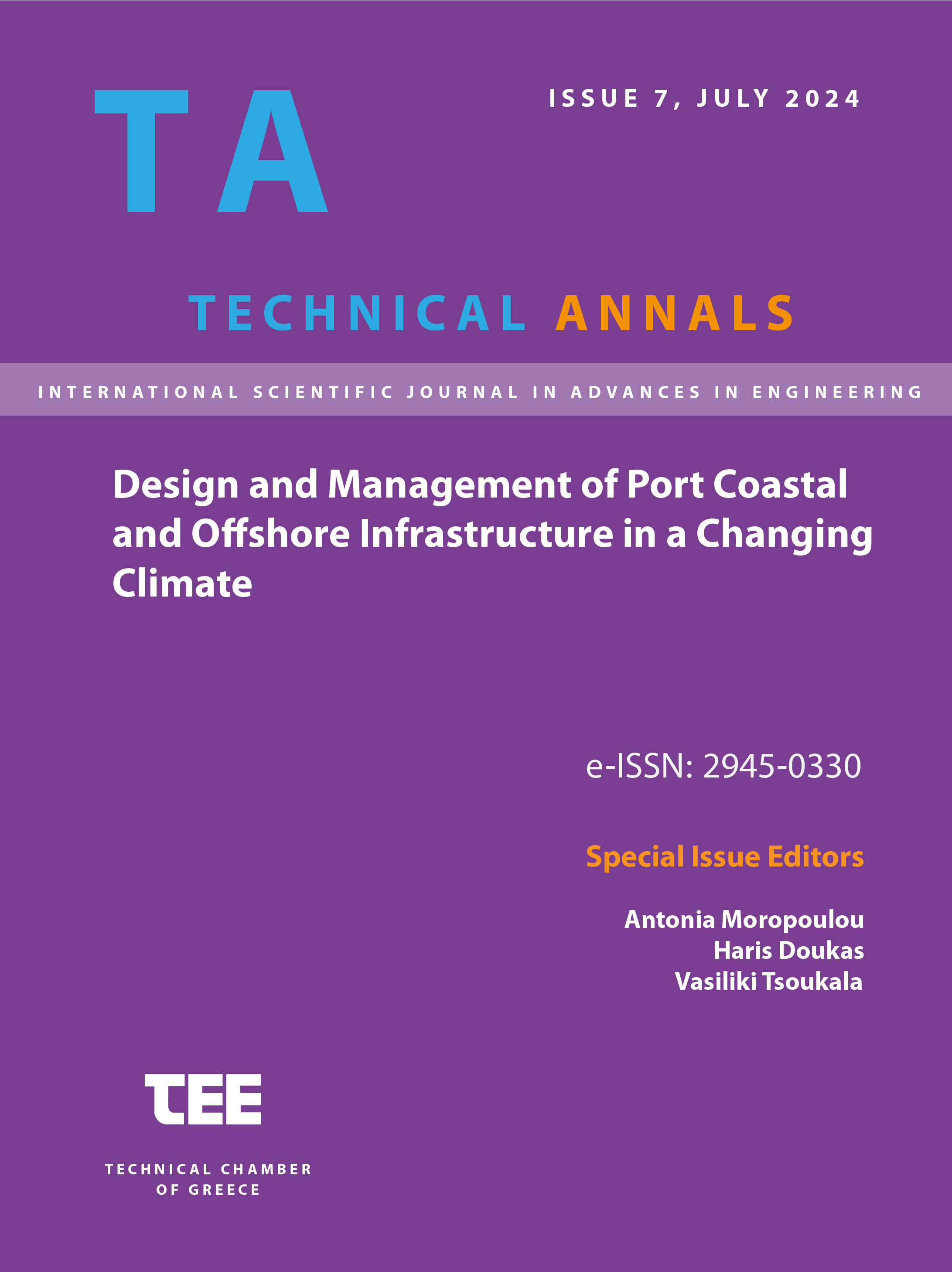The Impact of Sea Level Rise on the Port of Heraklio: Operational Risk Assessment and Economic Implications

Abstract
Rising sea levels pose a significant threat to coastal infrastructure, particularly seaports, which are vital to global maritime trade. This study assesses the impact of sea level rise (SLR) on the Port of Heraklion, Greece, contributing to the broader discourse on climate change in the port sector while providing a framework for evaluating and quantifying economic consequences. Using Digital Elevation Model (DEM) analysis, historical sea level trends, and projections under the high-emission SSP5-8.5 scenario, the study examines the port’s vulnerability to operational disruptions.
Findings indicate that lower-elevation docks, particularly those at 1.8m, are highly susceptible to water level exceedances, affecting passenger ferries, cruise ships, and dry bulk cargo operations. Historical analysis (1998–2023) reveals a mean sea level of 0.63m, with extreme values reaching 1.14m, while operational thresholds at the port range from 0.91m to 1.31m, depending on dock height.
The frequency of threshold exceedances has increased from fewer than one event per year before 2005 to approximately four events per year since then. By 2030, these events are projected to occur on ~44 days annually, escalating to ~186 days by 2050, rendering many docks inoperable. However, docks above 2.1m remain largely functional, underscoring elevation as a critical resilience factor. Financially, cumulative revenue losses are estimated at €3.1 million by 2030, rising to €32.2 million by 2050.
These findings highlight the urgent need for adaptation measures to mitigate economic and operational risks. Practical implications emphasize the necessity of integrating climate resilience strategies into port planning, particularly for insular regions where maritime connectivity is essential.
Article Details
- How to Cite
-
Karditsa, A., Roumpis, E., Markozanes, F., Lesioti, M., Monioudi, I., Poulos, S., Hatzaki, M., & Vaggelas, G. (2024). The Impact of Sea Level Rise on the Port of Heraklio: Operational Risk Assessment and Economic Implications. Technical Annals, 1(7). https://doi.org/10.12681/ta.40810
- Section
- Climate Change

This work is licensed under a Creative Commons Attribution-NonCommercial-ShareAlike 4.0 International License.


